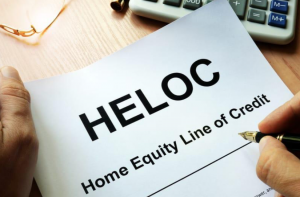
In its simplest form, a HELOC works something like a credit card. You can borrow money up to a certain credit limit set by your lender and then pay back the borrowed amount with interest. This option can offer great flexibility as you can withdraw and make payments on a daily, or weekly basis if necessary.
In this case, the maximum amount you’d be able to borrow is $80,000.
Home’s market value: $700,000
80% of home’s value: $560,000
Minus mortgage balance: $560,000-$480,000
Potential Home Equity Line of Credit: $80,000
Benefits of a HELOC?
A HELOC is an open mortgage and can be paid back at any time with no pre-payment penalty. There is no cost to use a HELOC unless you have a balance on it. The minimum payments each month are interest only.
What is the length of a HELOC term?
the length is tied into your mortgage term. If you renew with your lender then the HELOC can be renewed as well. If you change lenders at any time, you can look to have another HELOC attached to your property.
What does it Cost to set up a HELOC?
The costs on setting up your HELOC will depend on your individual situation as there may be an appraisal and legal component that come into play, other mortgages are set up for HELOC’s already so there may not be a cost.
How to use a HELOC?
- Debt consolidation, HELOC’s offer as much lower interest rate than unsecured debt such as credit cards, personal loans, etc. so applying these funds to wipe out high interest debt can save you thousands in the long run.
- Repairs or maintenance on your home.
- Emergency funds for loss of job, health etc.
- Purchasing investment property
Whats next?
Before you decide to take out a HELOC consider what you will actually need it for. As in some cases it might make more sense to do an actual refinance considering the low rate environment we are in today. As always, when it comes to mortgage financing there is no one size fits all solution. If you find yourself interested in finding out more about your options give me a call at 604-832-2849 or email anytime at harvir.mann@cleartrust.ca
